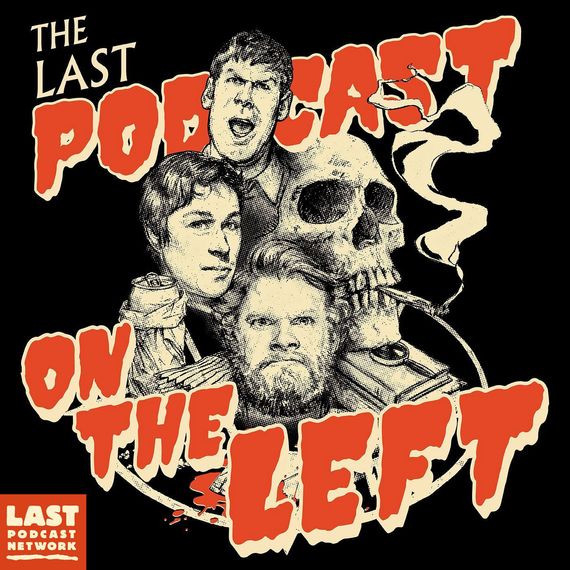
The true-crime-podcast universe is ever expanding. We’re here to make it a bit smaller and a bit more manageable. There are a lot of great shows, and each has a lot of great episodes, so we want to highlight the noteworthy and the exceptional. Each week, our crack team of podcast enthusiasts and specialists picks its favorites.
Carrie Low Vs., “Believed”
After being drugged, kidnapped, and raped in 2018, Nova Scotia resident Carrie Low did what every survivor of sexual violence is told to do — she reported the crime to Halifax police. What followed was a protracted nightmare in which Low was allegedly labeled a liar and a drunk by police, who also neglected to visit the scene of the crime or look at any clothing or blood evidence. Investigative journalist and podcast host Maggie Rahr follows Low (who sought out Rahr) as she seeks to find out what happened in her case and to hold those who failed her accountable.
In episode three, constable Jerell Smith, the officer originally assigned to the case, meets with Low, alleging that the police were told to ignore her case, flipping everything she thought she knew on its head, specifically about Smith himself and the crime unit that refused to follow its own policies. What actually happened to Low’s case? Was it neglected, and if so, who was responsible for allowing that to happen? If you’ve ever wondered why survivors of sexual violence don’t always report, this ongoing investigation will provide some ugly truths. —Chanel Dubofksy
Bonaparte, “Annie” and “Laura”
In 1996, 21-year-old Laura Van Wyhe was found by a truck driver lying unconscious on the side of an Iowa road. She would be pronounced dead just three hours later. The mystery surrounding Van Wyhe’s death still looms large all these years later — especially for childhood friend Anne Champion, who left their hometown and grew up to be a successful Manhattan attorney. This new podcast, Bonaparte — named after the last place Van Wyhe was seen alive — is hosted by former lawyer and journalist Jason Stavers, but it’s Champion who is the beating heart of this narrative. After 25 years, she is intent on getting answers. In these first two episodes, we’re introduced to the story’s two central female figures, first through Champion’s memories of Van Wyhe, then through the musings of their mutual friends, many of whom still seem to live in and around Bonaparte. Staver’s evocative storytelling throughout nicely complements Champion’s recollections, further cultivating a feeling of intimacy and immediacy. The time is more than past due to find out what really happened to Van Wyhe, once and for all. —Amy Wilkinson
Believe Her, “The Silencing”
Hosted by reporter Justine van der Leun, Believe Her is crucial listening for anyone interested in the justice system and how society fails survivors of sexual violence. As van der Leun says in the first episode, “We love a true-crime story when the woman is dead. Only in death can a woman secure her status as the perfect victim.” Nikki Addimando is currently serving jail time for killing her partner, Chris Grover, after years of alleged physical, sexual, and emotional abuse that came to a head one terrible night in 2017. As we learn through interviews with Nikki’s friends, sister, former therapist, and even her midwife, Chris wasn’t the first man to abuse Nikki; a lifetime of PTSD, dissociation, and pain made her an imperfect victim, unable to completely recall timelines of abuse that overlapped, refracted, and were possibly conflated.
Van der Leun artfully weaves together expert insight on trauma and sexual violence, interviews with those who know Nikki and knew Chris (including one local “gym mom,” who truly could not believe someone who was nice to her and her daughter could also be abusive to someone else), and conversations with Nikki herself to create an unforgettable and infuriating story that’s just one example of how sexual violence and the carceral system are intertwined. It’s truly infuriating that Nikki had been failed by those around her for so, so long and that her only options seemed to be to live or die that night in 2017; it’s small comfort that her sentence was recently reduced to seven and a half years under the Domestic Violence Survivors Justice Act. —Jenni Miller
Last Podcast on the Left, “Karla Homolka & Paul Bernardo Part III - Canadian Psycho”
This three-part series on the crimes of Canada’s own Ken and Barbie Killers constitute what the Last Podcast on the Left guys call gold-star episodes — they’re beyond content warnings and well into “listen at your peril” territory. While this does carry a whiff of voyeurism that recalls the appropriately ’90s-esque thrills of renting a bootleg copy of Faces of Death on VHS, it’s an incredible indictment of Canada’s criminal-justice system. Marcus does an incredible amount of research into this repulsive folie à deux, Henry offers some morbid levity with endless imitations of Canadian officials whiffing the investigations into the Scarborough rapist and the suspicious death of Homolka’s sister Tammy, not to mention Bernardo’s horrific rap aspirations (although it’s clear Henry also does research, it must be noted!), and Ben is the disgusted and shocked stand-in for the listener.
The third episode zeroes in on how they finally get caught and the ensuing trials, the results of which are shocking even if you’re familiar with the case. Homolka received a plea deal and testified she was an “unwilling accomplice” to the crimes as well as a victim of Bernardo’s abuse herself. While I have no doubt Bernardo was abusive to her, it can also be true that she is culpable; proof of her, shall we say, enthusiasm for the crimes was found on video tapes uncovered by investigators after the deal was made. Today, Homolka walks free, albeit under a different name, while Bernardo was thankfully denied parole again earlier this year. —Jenni Miller





